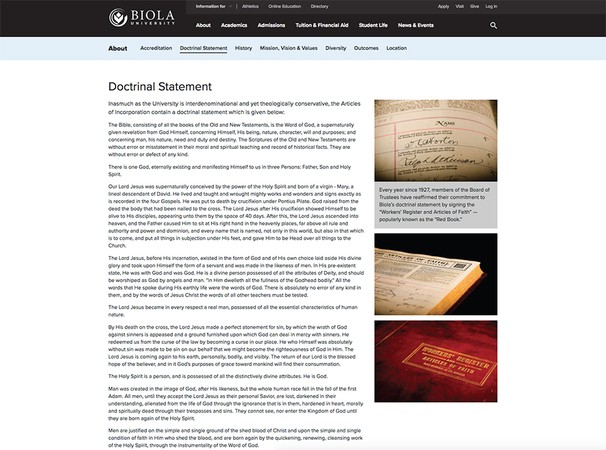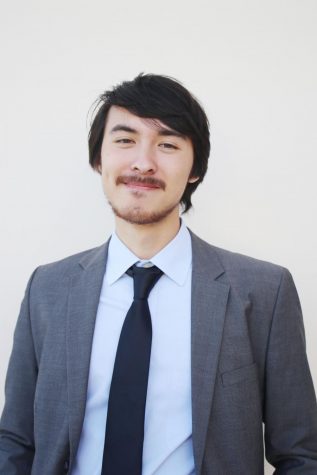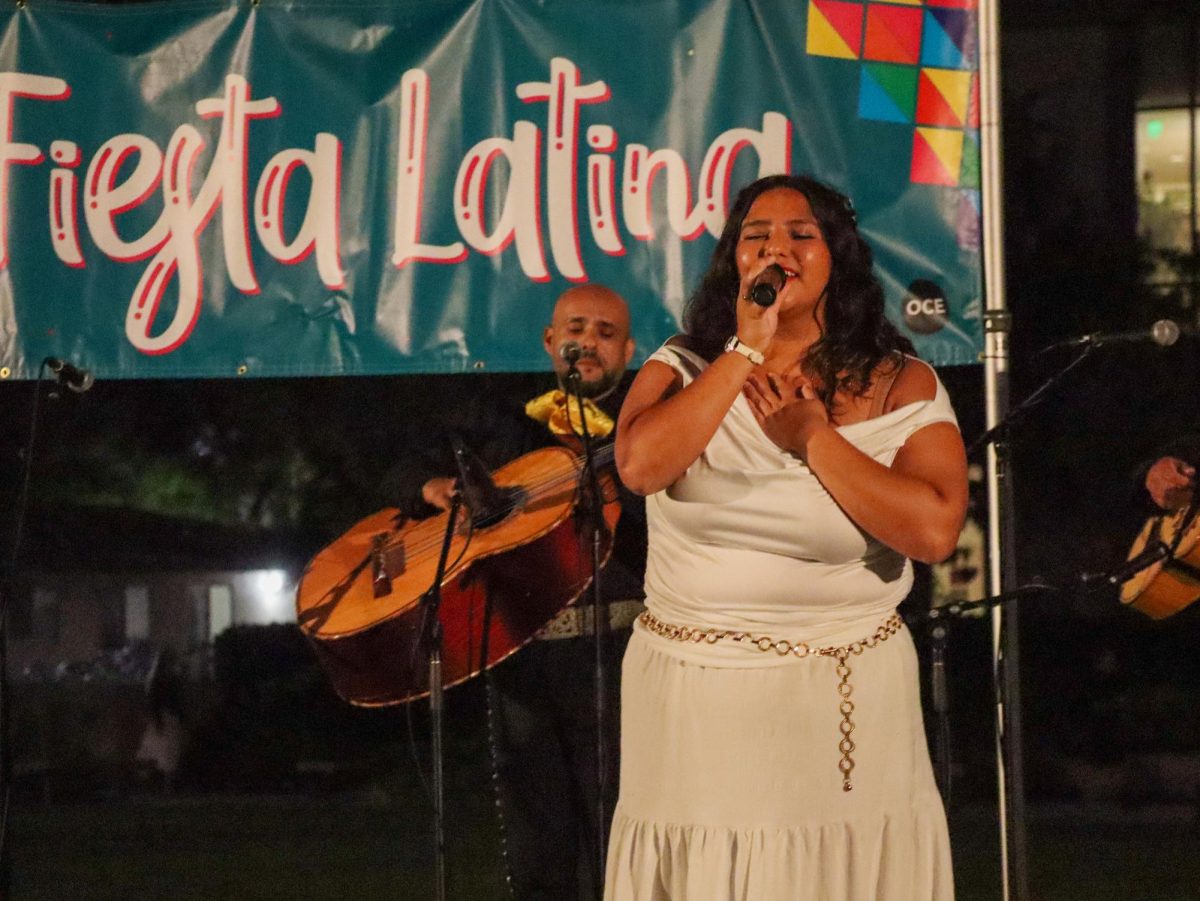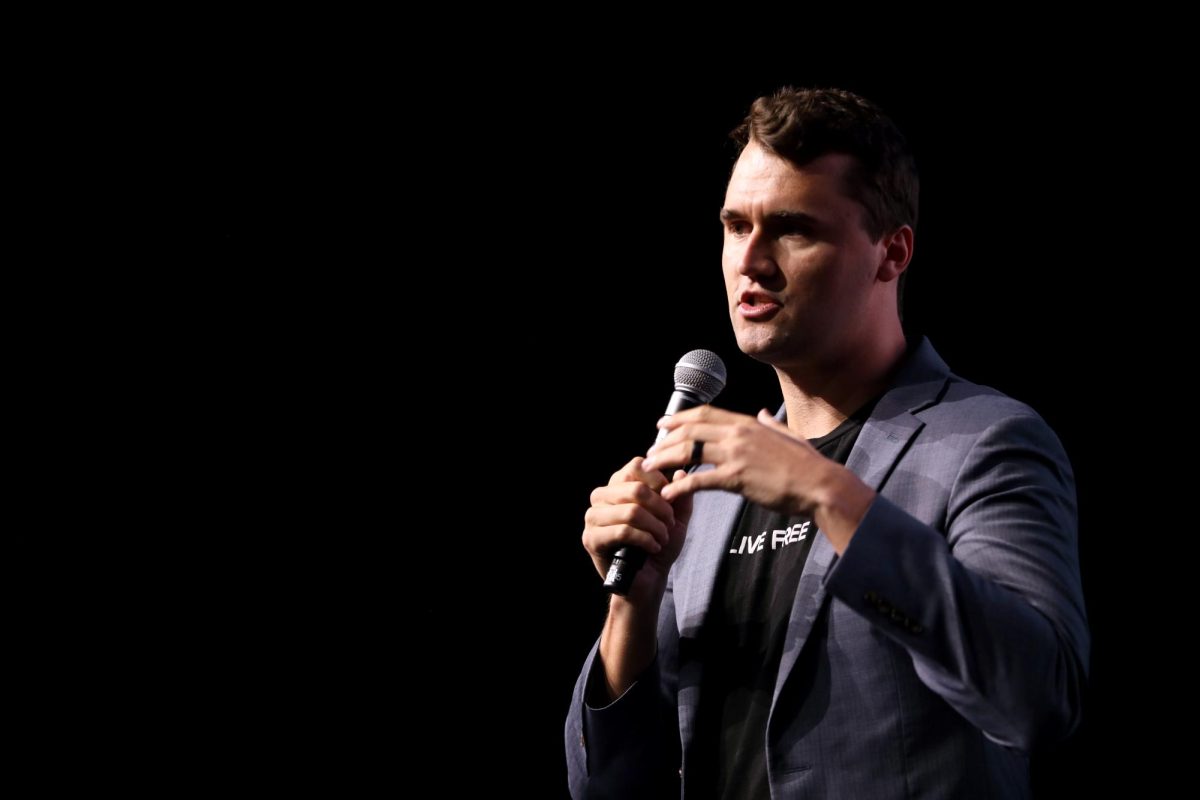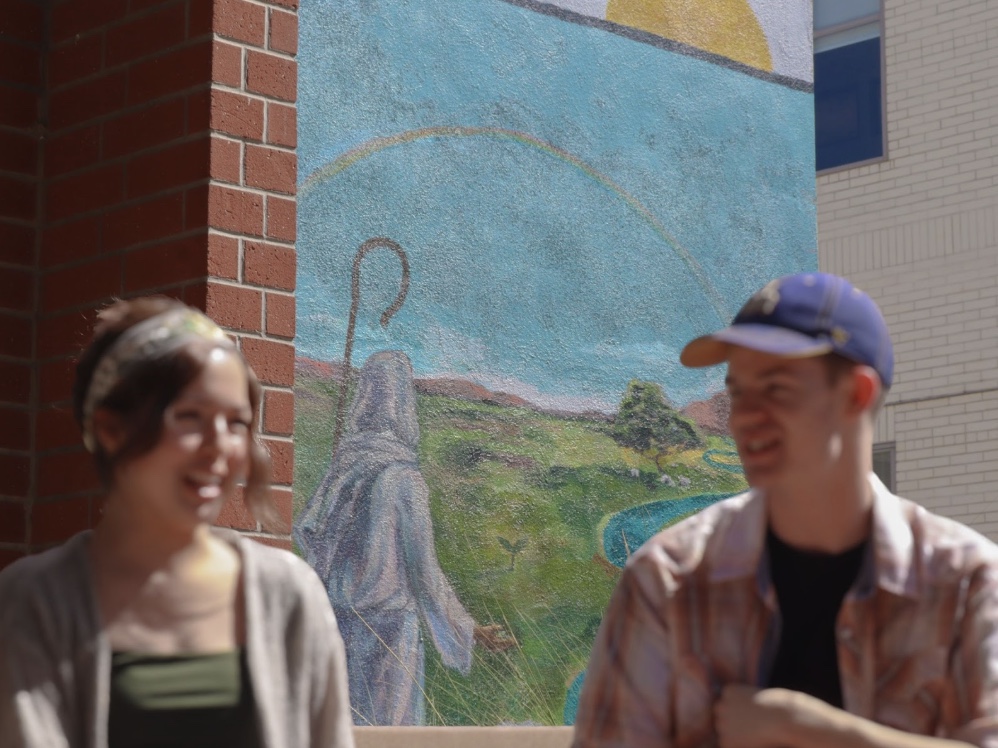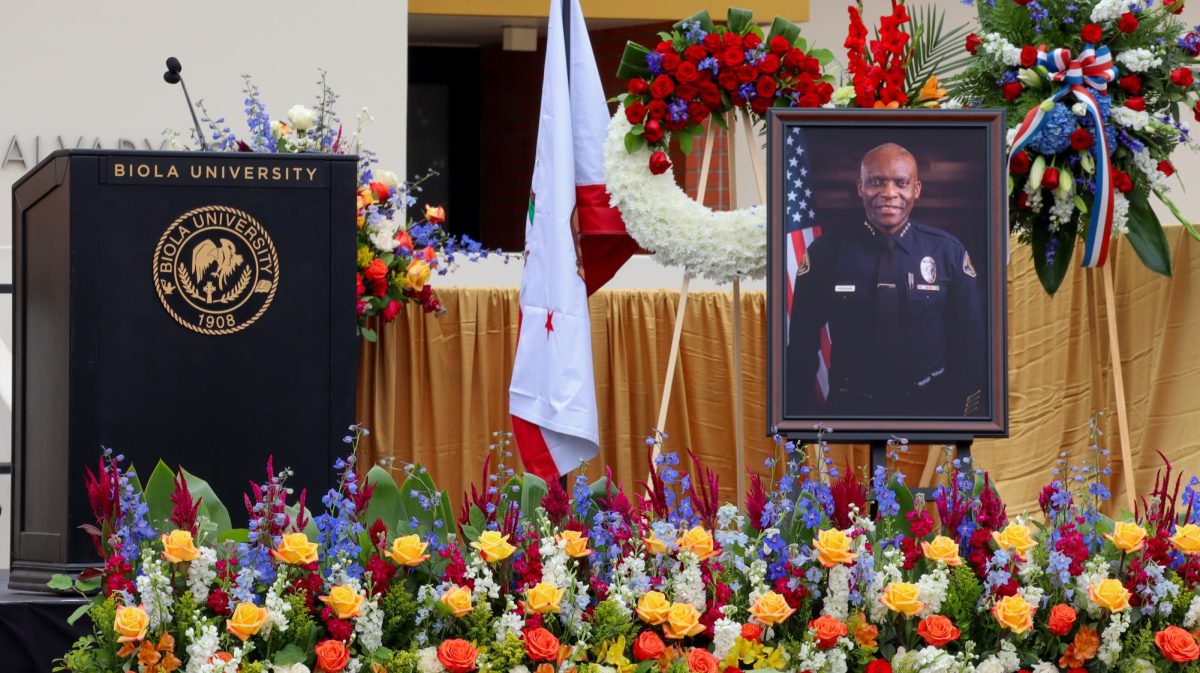A drafting committee is writing a statement of biblical principles which will help Biola to holistically affirm its institutional beliefs concerning issues including abortion and sexuality, even after cultural and social values shift.
STATEMENT EXPLAINS POSITIONS
Biola’s doctrinal statement currently consists of the articles of faith, which have remained unchanged since the university’s early history, and the theological distinctives, which address issues raised by cultural movements over time.
The statement will likely replace the latter section, stepping back from reactionary points and moving toward a comprehensive summary of what Biola believes and why, according to vice president of University Communications and Marketing Lee Wilhite.
After the drafting committee submits the final draft, the Board of Trusteeswill decide whom the statement will affect or whether faculty and students will have to affirm it, according to Wilhite. Possibilities include requiring faculty to sign the statement before receiving employment and having students agree to it when applying to Biola. However, he believes the statement will help the university better explain its position to those inside and outside of the Biola community.
“I hope it’s a confirmation and affirmation of what we stand for. I don’t think there’s going to be anything there that’s a surprise, or anything that would be inconsistent with what we know of Scripture. I think it’s going to be something that we can celebrate. It’ll be clarifying for people in our community to know where we stand on these things. It’ll be clarifying for prospective students and families that are considering Biola,” Wilhite said.
GATHERING INPUT
The Board initially proposed a motion to revise the doctrinal statement in September 2016, and then formed a drafting committee consisting of one trustee and five faculty to write the statement. The committee presented a draft in May 2017, prompting the board to ask President Barry Corey to gather input on the statement from approximately 40 pastors, theologians, academics and alumni. In January, the board received the input from those who responded and will likely review the statement in September before deciding how to announce it to the larger community, according to Wilhite.
While freshman history major Tarah Kuhn believes students should know their university’s stance on contentious issues, she also wants students to have the ability to hear differing viewpoints from their faculty. The drafting committee should also consider students’ own beliefs when preparing the statement, according to Kuhn.
“Ask students what they believe… so that maybe the executives and the higher ups can still be in charge, but just [that they] are aware of what the students are thinking and feeling,” Kuhn said.



